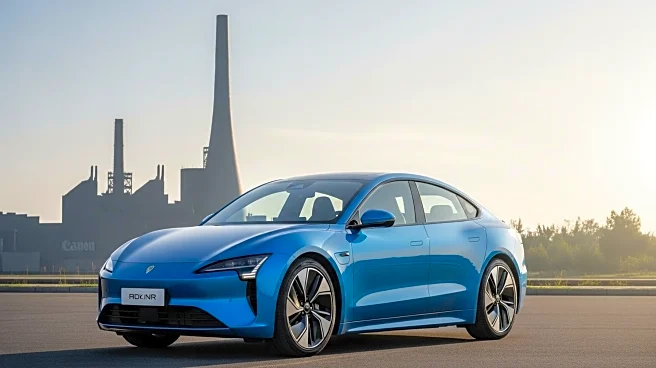What's Happening?
Nissan has reported a 6.4% increase in its third-quarter sales, driven by a strategic focus on U.S.-built models. This growth is part of a broader trend in the U.S. automotive market, where light-vehicle sales are projected to rise between 4.5% and 7.5% in September. The increase is largely attributed to the growing demand for electric vehicles and light trucks. Nissan's emphasis on domestic production aligns with consumer preferences and market trends, contributing to its sales success.
Why It's Important?
Nissan's sales growth underscores the significance of aligning production strategies with market demands, particularly in the context of increasing consumer interest in electric vehicles and light trucks. This trend reflects a shift in the automotive industry towards more sustainable and locally produced vehicles, influenced by both consumer preferences and regulatory environments. The success of U.S.-built models highlights the potential benefits of domestic manufacturing in enhancing competitiveness and meeting local market needs.
What's Next?
As the federal electric vehicle tax credit expires, the automotive industry may experience shifts in consumer purchasing behavior. Manufacturers like Nissan will need to continue adapting their strategies to maintain sales momentum. The focus on U.S.-built models and electric vehicles is likely to remain a key component of Nissan's strategy, as the company seeks to capitalize on evolving market trends and consumer preferences.









